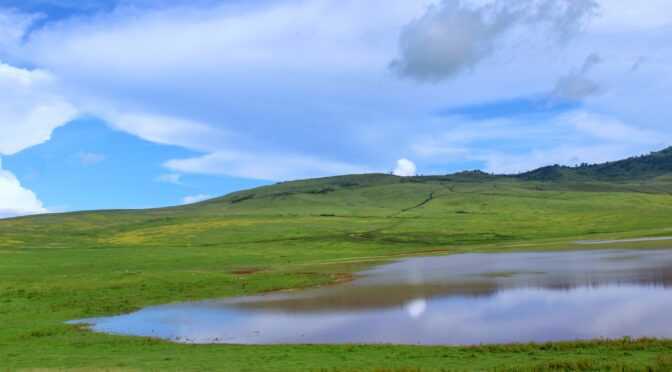Are you interested in visiting the Serengeti and/or the Ngorongoro Conservation Area (NCA) soon? Wondering how to go to Ngorongoro or the Serengeti? If so, here is a bit about that.
READ ALSO: How to Go to Ngorongoro Krateret
Table of Contents
How to Get to Ngorongoro Crater: Dar es salaam to Ngorongoro Crater/Dar to Ngorongoro
There are several ways to get from Dar es salaam to the Ngorongoro Crater.
You can do this by road, which is a 14-hour journey that will usually require you to spend the night in either Arusha or Karatu, since entry into the Conservation Area normally happens very early in the morning.
Alternatively, you can fly to Kilimanjaro International Airport (KIA) and make the rest of the journey by road. It is about a three-and-a-half hour drive from KIA to the Lodoare Gate of the Ngorongoro Conservation Area.
Lastly, you can fly most of the way from Dar es Salaam to the Ngorongoro Crater.
Read more about which flights are available and to what airstrip closest to the Ngorongoro Crater here.

How to Reach Ngorongoro by Road if You Are Coming From the North
The Serengeti lies north of Ngorongoro, so you can also drive to Ngorongoro from the Serengeti (the two conservation areas are contiguous).
The distance between Seronera (the central valley of the Serengeti) and Naabi Hill Gate, which leads to the Ngorongoro Conservation Area is about 50 km.
The road between the Serengeti and Ngorongoro is a main road so is straightforward and not one you are likely to get lost on.
As all travel through conservation areas in Tanzania, it’s best to do this drive with a 4×4.
How to Reach Ngorongoro By Train
You cannot reach Ngorongoro by train.
Dar es Salaam to Ngorongoro Crater Distance
The distance between Dar es Salaam and the Ngorongoro Headquarters, located on the rim of the crater is roughly 805 km by road.
Distance from Arusha to Ngorongoro Crater
The distance from Arusha to the Ngorongoro Crater in Tanzania is approximately 190 kilometers (118 miles) by road. The journey usually takes around 3 to 4 hours by car, depending on road conditions and traffic. Keep in mind that travel times can vary, and it’s always a good idea to check the current road conditions and plan accordingly.
Ngorongoro Crater is a large, volcanic caldera located in the Ngorongoro Conservation Area, which is a UNESCO World Heritage Site.
It is renowned for its stunning landscapes and diverse wildlife, making it a popular destination for tourists visiting Tanzania.
The crater is home to a wide variety of animals, including lions, elephants, rhinos, and an abundance of bird species. Visitors can enjoy game drives within the crater to observe the rich wildlife and breathtaking scenery.
Distance from Karatu to Ngorongoro Crater
Karatu is a town located near the Ngorongoro Conservation Area in Tanzania, and it serves as a gateway for travelers visiting the Ngorongoro Crater.
The distance from Karatu to the Ngorongoro Crater is relatively short, as Karatu is one of the towns situated on the outskirts of the conservation area.
The distance between Karatu and the Ngorongoro Crater entrance is approximately 15 to 20 kilometers (9 to 12 miles), depending on the specific location in Karatu and the entrance gate used.
The drive from Karatu to the Ngorongoro Crater typically takes around 30 minutes to an hour, depending on road conditions.
Karatu is often used as a base for visitors exploring the Ngorongoro Crater and the surrounding areas. Many accommodations, including lodges and camps, are located in and around Karatu, providing a convenient starting point for safari adventures to the Ngorongoro Crater.
How to Reach Serengeti by Train
You cannot reach the Serengeti by train either.
READ ALSO: Nugumu & Serengeti Safari Operators
If you would like to travel through Tanzania by train on your way to the Serengeti, the best you can do is to either take the train to Arusha or Mwanza and then connect to the Serengeti from there.
I do not recommend doing this, though, because train service in Tanzania takes a long time and is quite unreliable. I would much more recommend travel by air or road.
READ ALSO: Travelling Through the Serengeti and Ngorongoro Conservation Area
Photo credits: Lola Akinmade
